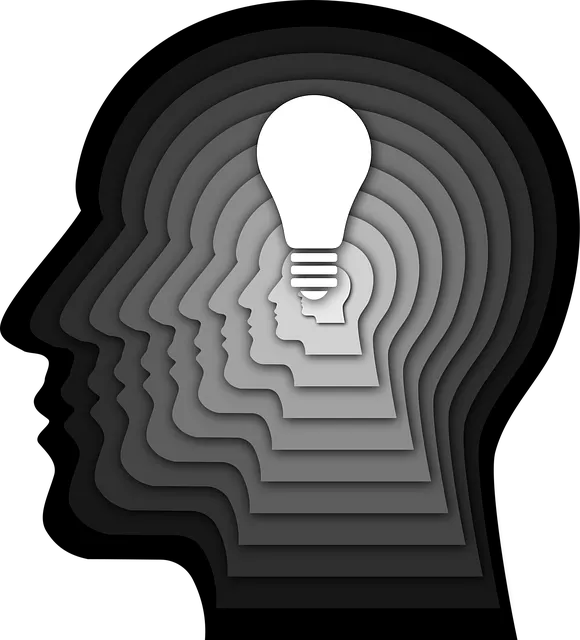The RFM (Risk, Functioning, and Motivation) model enhances mental health resilience by assessing navigation skills and purpose. Kaiser Permanente Boulder's phone support offers risk assessments and tailored interventions like Mindfulness Meditation for better coping mechanisms. Resilience-building exercises, accessible via the Kaiser Permanente mental health line, empower individuals to handle challenges with improved emotional well-being. Evidence-based RFM programs, coupled with community engagement, promote stigma reduction and track success through feedback and outcomes.
Resilience, a cornerstone of mental well-being, is crucial for navigating life’s challenges. The RFM (Strengths, Risks, and Needs) model offers a structured approach to enhancing resilience, especially in healthcare settings. This article explores the integration of Resilience Building Exercises within Kaiser Permanente Boulder’s mental health services. We delve into how these programs, targeted at patients’ unique needs, foster adaptability and coping strategies. Additionally, we discuss measurement techniques and resources, highlighting Kaiser Permanente’s commitment to evidence-based care through their Boulder mental health phone number support.
- Understanding RFM in Mental Health Care
- The Role of Resilience Building Exercises
- Implementing Programs at Kaiser Permanente Boulder
- Measuring Success and Supportive Resources
Understanding RFM in Mental Health Care

Understanding RFM (Risk, Functioning, and Motivation) in mental health care is a critical component of enhancing resilience among patients and professionals alike. This framework goes beyond traditional diagnostic labels by focusing on an individual’s ability to navigate challenges and maintain a sense of purpose. It involves assessing not only the risks present but also evaluating how individuals function within their environment and what drives or motivates them towards positive change.
For those seeking support, reaching out to resources like the Kaiser Permanente mental health phone number Boulder can be a crucial step in accessing specialized care. These services provide an opportunity for comprehensive risk assessment, where professionals utilize tools like the Risk Assessment for Mental Health Professionals to identify potential hazards and develop tailored interventions. Incorporating practices such as Mindfulness Meditation and Crisis Intervention Guidance can empower individuals to build resilience, fostering better coping mechanisms and overall well-being.
The Role of Resilience Building Exercises

Resilience building exercises play a pivotal role in enhancing individuals’ ability to cope with life’s challenges and stresses, especially in today’s fast-paced world. These exercises are designed to foster mental fortitude, helping folks navigate difficult situations with greater ease. By integrating practices that promote emotional well-being, such as mindfulness, stress management, and coping skills development, individuals can build a strong foundation for resilience.
In Boulder, where Kaiser Permanente offers comprehensive mental health services through its phone support lines, the implementation of these exercises can be highly beneficial. Public Awareness Campaigns focused on Depression Prevention and overall Mental Health Awareness have highlighted the importance of building resilience as a proactive approach to wellness. Engaging in regular resilience-building activities empowers individuals to take charge of their mental health, ensuring they are equipped with the necessary tools to face life’s curveballs head-on.
Implementing Programs at Kaiser Permanente Boulder

Kaiser Permanente Boulder has been at the forefront of implementing innovative programs aimed at enhancing mental health and resilience within their community. One such initiative is the introduction of RFM (Resilience, Flexibility, and Mindfulness) exercises, designed to equip individuals with powerful tools for navigating life’s challenges. These programs are a testament to the organization’s commitment to not just treating mental health issues but also empowering people to build lasting resilience.
The integration of these exercises has been met with positive responses from participants, who have found them valuable in managing stress and fostering a sense of well-being. By combining evidence-based practices with a holistic approach, Kaiser Permanente Boulder ensures that their services cater to the diverse needs of individuals seeking mental health support. This includes efforts to reduce the stigma surrounding mental illness, as well as providing trauma support services tailored to those who have experienced adversity, ultimately enhancing the overall mental health awareness in the community.
Measuring Success and Supportive Resources

Measuring success is a vital component of any resilience-building program. When implementing exercises designed to enhance emotional well-being and self-awareness, tracking progress can provide valuable insights. Metrics such as participant feedback, improvements in mental health outcomes, and increased engagement in therapeutic activities offer qualitative and quantitative assessments. For instance, the Kaiser Permanente mental health phone number in Boulder can serve as a crucial resource, allowing individuals to access support and track their personal growth over time.
Supportive resources play an equally important role. Mental Health Education Programs Design often rely on a comprehensive approach that includes self-awareness exercises, educational workshops, and access to professional help. By integrating these resources effectively, programs can foster a supportive environment, enabling participants to build resilience and navigate challenges more successfully. This holistic strategy ensures that individuals not only acquire valuable skills but also have the necessary tools and guidance for long-term emotional well-being promotion techniques.
Resilience is a powerful tool for navigating life’s challenges, and programs like RFM offer a promising approach in mental health care. As demonstrated by Kaiser Permanente Boulder’s successful implementation of resilience-building exercises, these initiatives can significantly enhance patients’ coping mechanisms and overall well-being. With the right resources and support, as highlighted in this article, healthcare providers can empower individuals to build resilience and lead more fulfilling lives. For those seeking mental health support, contacting the Kaiser Permanente Boulder phone number is a step towards accessing these valuable programs.






